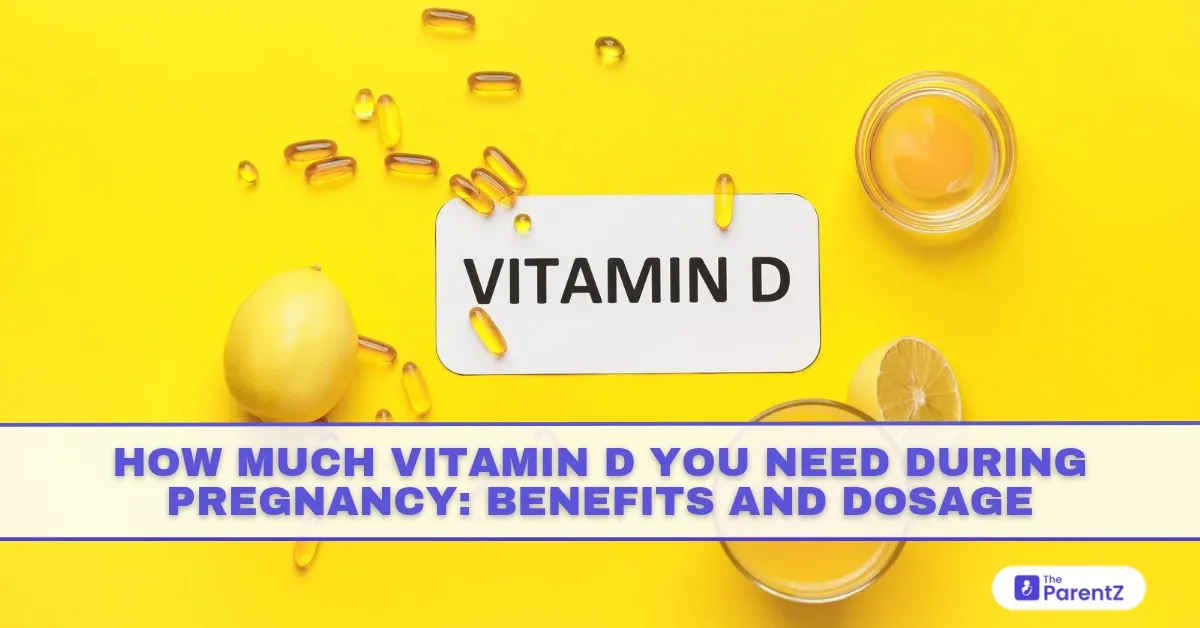Pregnancy is synonymous with incredible changes for the mother, and every nutrient consumed plays a big role in ensuring the future health of both mother and baby. Vitamin D is one of the most important nutrients during pregnancy that impacts everything from immune function to the baby’s growth.
However, did you know nearly 50-80 percent of pregnant women worldwide are vitamin D deficient, according to the National Institutes of Health? This deficiency is what results in gestational diabetes, preterm birth, and a low birth weight in newborns.
The real question is—how much vitamin D do you actually need during pregnancy? Read this article to find out the benefits of vitamin D during pregnancy and its recommended dosage.
Why Is Vitamin D Important During Pregnancy?
Vitamin D is often called the sunshine vitamin. It basically helps the body absorb calcium and phosphorus, which are essential for bone health. However, during pregnancy, vitamin D benefits in numerous other ways.
Supports Bone Development in Babies:
These nutrients help in the formation of strong bones and teeth in the fetus. On the other hand, its deficiency can also lead to rickets.
Reduces the Risk of Preterm Birth:
According to studies, pregnant women with adequate vitamin D have 50 percent fewer chances of having preterm labor or preeclampsia.
Boosts the Immune System:
Vitamin D also plays a significant role in supporting a stronger immunity in mothers, which ultimately reduces the risk of infections that could affect the developing baby.
Reduces the Risk of Gestational Diabetes:
Low vitamin D levels have been associated with higher blood sugar levels during pregnancy, which significantly increases the risk of gestational diabetes.
How Much Vitamin D Do You Need During Pregnancy?
The recommended daily intake of vitamin D during pregnancy, according to the American College of Obstetricians and Gynecologists (ACOG), is 600-1,000 IU. Some experts even suggest up to 4,000 IU for women with severe deficiency.
Since most prenatal vitamins only contain 400-600 IU of vitamin D, often they may not be enough for women who are deficient.
How to Get Enough Vitamin D?
Here are a few helpful ways you can get enough vitamin D.
Get Enough Sunlight
Yes, your skin produces vitamin D when exposed to sunlight. Therefore, it is essential to get 15-30 minutes of sun exposure without sunscreen on arms and legs for at least 3-4 times a week.
Consume Vitamin D-Rich Foods
While food sources of vitamin D are limited, here are a few excellent sources you must include in your diet:
| Food | Vitamin D Content per Serving |
| Salmon (100 gm) | 600-800 IU |
| Egg yolk (1 large) | 37 IU |
| Fortified Milk (1 cup) | 100-120 IU |
| Fortified Orange Juice (1 cup) | 100 IU |
| Mushrooms (Exposed to sunlight) | 400 IU per 100g |
Vitamin D Supplements
Lastly, some women may not get enough sun exposure or dietary vitamin D. Thus, taking supplements can prove helpful. If you're deficient, your doctor may recommend 1,000-4,000 IU per day. Besides, prenatal vitamins typically contain 400-600 IU of vitamin D.
Signs of Vitamin D Deficiency in Pregnancy
Typically, most women do not realize they are deficient in vitamin D until symptoms appear. Here are some common signs to look for:
- Frequent fatigue
- Muscle weakness or body pain.
- Depression or mood swings
- Increased risk of infections
Final Thoughts
Getting enough vitamin D during pregnancy is important when it comes to ensuring mothers' and babies' health. While 600-1,000 IU daily is recommended, some women may also need higher doses if they are deficient.
If you notice any signs of vitamin D deficiency, it’s best to check with your doctor and consider a blood test.








Be the first one to comment on this story.